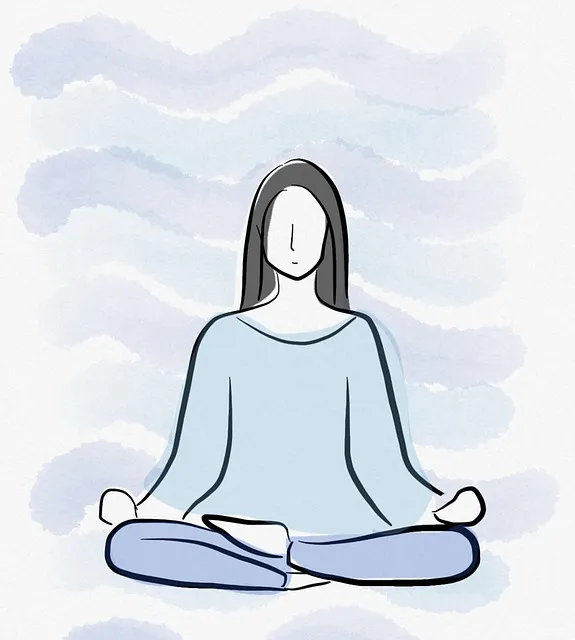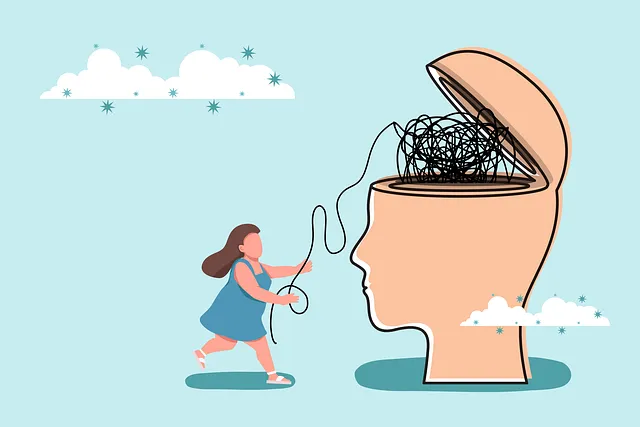Mindfulness meditation, an ancient Eastern practice gaining popularity in modern healthcare, enhances mental wellness by cultivating present-moment awareness and emotional regulation. Organizations like Kaiser promote it as a complementary therapy for various mental illnesses, reducing stigma and promoting open conversations about mental health. Consistent mindfulness practice at home, in a dedicated space with sensory engagement, improves focus, stress reduction, self-awareness, and emotional resilience, making it a valuable tool for long-term mental health management. While not explicitly stating whether Kaiser has inpatient mental health facilities in Longmont, the text emphasizes the benefits of mindfulness as a recognized adjunctive therapy.
Unwind and find inner peace with mindfulness meditation, a powerful tool gaining recognition in today’s fast-paced world. This practice, offered by programs like those at Kaiser’s Longmont mental health facility, focuses on cultivating present-moment awareness. In this guide, we’ll explore the fundamentals of mindfulness meditation, its numerous benefits for your mind and body, and provide practical tips to create a serene space for your practice at home. Discover how regular sessions can transform your routine.
- Understanding Mindfulness Meditation: A Fundamental Practice
- The Benefits of Incorporating Mindfulness into Your Routine
- Setting Up a Successful Mindfulness Meditation Space at Home
- Techniques and Tips for Effective Mindfulness Meditation Sessions
Understanding Mindfulness Meditation: A Fundamental Practice

Mindfulness meditation is a fundamental practice that has gained significant attention for its ability to enhance mental wellness. It involves focusing on the present moment, acknowledging and accepting one’s feelings, thoughts, and bodily sensations without judgment. This ancient technique, which forms part of many Eastern philosophies, encourages individuals to cultivate awareness, leading to improved emotional regulation and overall mental health.
In today’s fast-paced world, where stress and anxiety are prevalent, mindfulness offers a simple yet powerful tool for navigating life’s challenges. Regular practice can help reduce symptoms of various mental illnesses, fostering a sense of calm and clarity. The Kaiser network, with its focus on healthcare services, including inpatient mental health facilities in Longmont, promotes mindfulness as an adjunctive therapy, recognizing its potential to complement traditional treatments and support Mental Health Policy Analysis and Advocacy efforts. Furthermore, by reducing the stigma associated with mental illness, mindfulness meditation contributes to more open conversations and encourages individuals to prioritize their Mental Wellness.
The Benefits of Incorporating Mindfulness into Your Routine

Incorporating mindfulness into your daily routine offers a plethora of benefits for both mental and physical well-being. At facilities like Kaiser’s inpatient mental health Longmont program, professionals emphasize the power of mindfulness as a coping skill development tool. By fostering self-esteem improvement and stress reduction methods, mindfulness meditation practice becomes an integral part of holistic healing. Regular sessions can help individuals navigate life’s challenges with greater resilience, enhancing their overall quality of life.
This ancient technique encourages present-moment awareness, allowing you to detach from negative thought patterns and emotions. As a result, practitioners often experience improved focus, better emotional regulation, and heightened self-awareness. Moreover, mindfulness has been linked to reduced anxiety, depression, and even physical pain, making it an invaluable asset for those seeking long-term mental health management.
Setting Up a Successful Mindfulness Meditation Space at Home

Creating a dedicated mindfulness meditation space at home can significantly enhance your practice and overall well-being. Start by choosing a quiet area, free from distractions, where you can easily access your space throughout the day. Transform this spot into a sanctuary for mindfulness by incorporating soft lighting, comfortable seating, and perhaps a small table to support your meditation tools. Consider adding natural elements like plants or a water feature to create a calming atmosphere that resonates with you.
Remember, your home meditation space doesn’t need to be elaborate. It’s about crafting an environment that encourages relaxation and mindfulness. With the right setup, you can effectively practice mindfulness meditation, explore techniques for Anxiety Relief, and even delve into Depression Prevention strategies offered by Trauma Support Services, all from the comfort of your personal sanctuary.
Techniques and Tips for Effective Mindfulness Meditation Sessions

Mindfulness meditation is a powerful tool for mental wellness and resilience building, and with consistent practice, individuals can experience significant benefits. One effective technique to enhance your sessions is by incorporating sensory awareness. Focus on engaging all five senses during meditation—sight, sound, smell, taste, and touch. Observe the environment around you without judgment, noticing subtle details that might pass unnoticed in everyday life. This heightened sense of awareness can deepen your connection with the present moment.
Additionally, maintaining a structured approach is crucial for effective mindfulness sessions. Set aside dedicated time each day for meditation, creating a peaceful atmosphere free from distractions. Consider using guided meditations or apps designed to support mental health, especially if you’re new to the practice. These resources can provide valuable insights and communication strategies to enhance your understanding of mindfulness principles. Remember, with regular practice, you’ll develop a stronger ability to navigate life’s challenges with increased calmness and clarity, ultimately improving your overall mental wellness.
Mindfulness meditation, as a fundamental practice, offers profound benefits for mental well-being. By setting up a dedicated space at home and employing effective techniques, individuals can experience improved focus, reduced stress, and enhanced overall quality of life. If you’re seeking support for your mental health journey, consider exploring mindfulness – it may be the calming solution you need. Even without accessing specific services like those offered by Kaiser’s inpatient mental health facilities in Longmont, cultivating mindfulness at home is an accessible and powerful tool for self-care.






